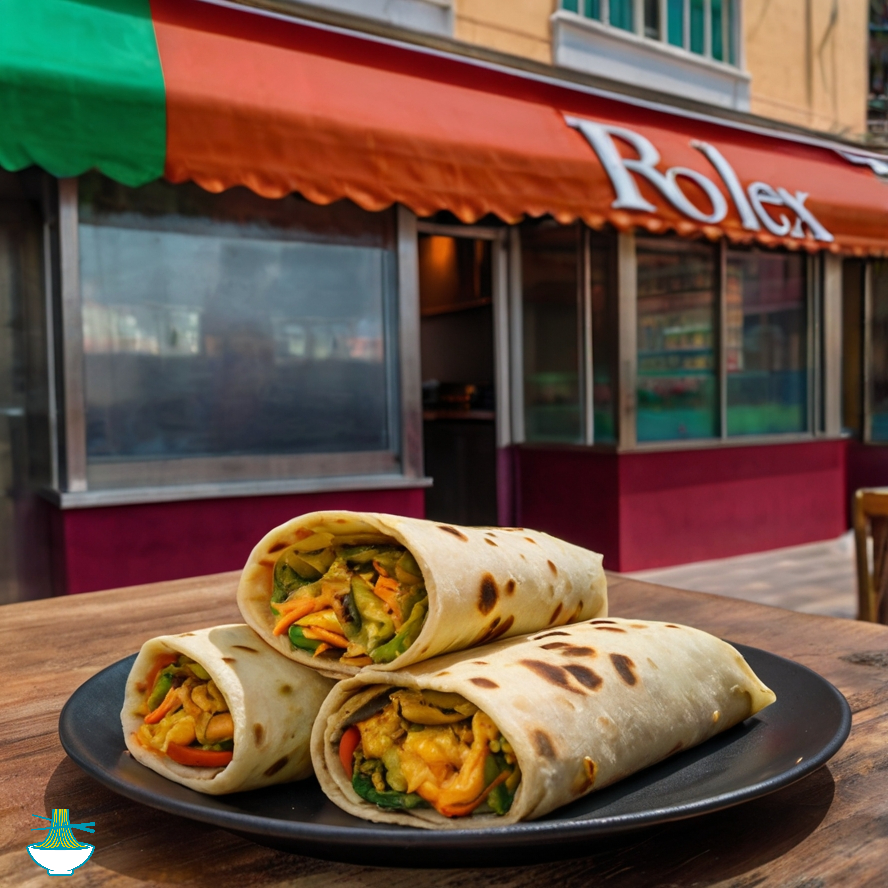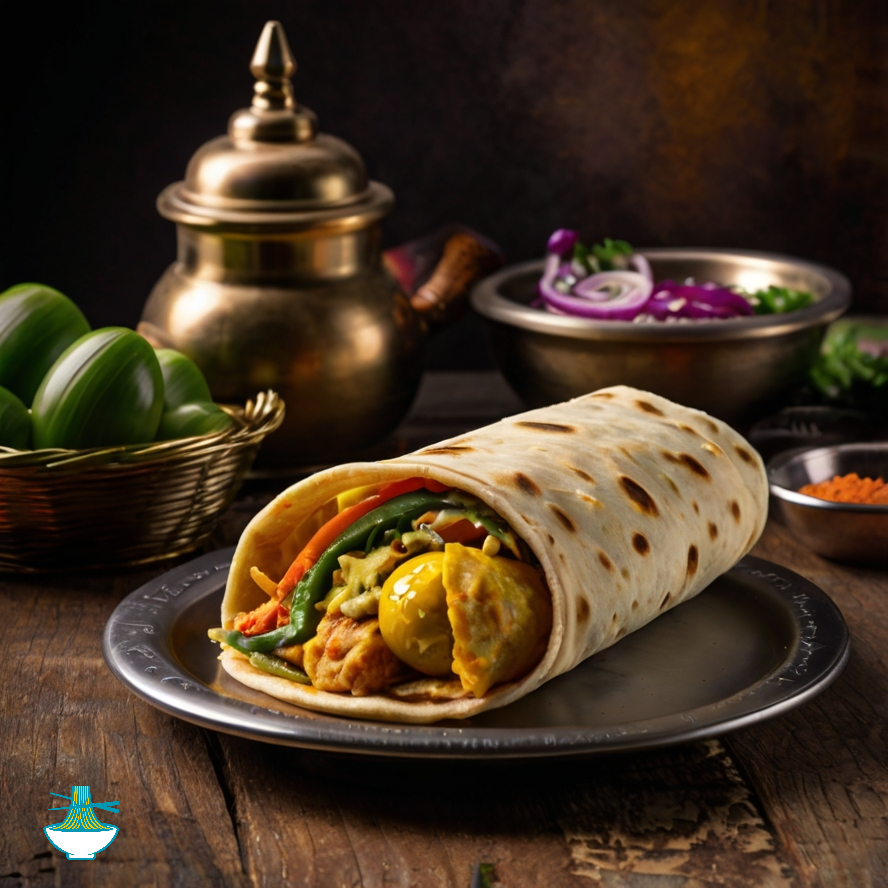The Rolex , a beloved Ugandan street food , is a flavorful fusion wrapped in chapati . Originating in Uganda , it became popular as a convenient snack or meal .

The recipe typically involves frying beaten eggs with vegetables like onions, tomatoes, and bell peppers, sometimes incorporating meat like sausage or bacon, all wrapped in a soft, chewy chapati. Its name, "Rolex," is said to derive from "rolled eggs." This versatile dish reflects Uganda's culinary diversity and has become a staple not only in its homeland but also gaining recognition globally for its deliciousness and simplicity.
Ingredients:
- Chapati (flatbread)
- Eggs
- Onions
- Tomatoes
- Bell peppers
- Salt
- Cooking oil
Method:
1. Heat a pan over medium heat and add a small amount of cooking oil.
2. Beat the eggs in a bowl and season with salt to taste.
3. Pour the beaten eggs into the pan and cook, stirring occasionally, until they are just set but still slightly runny.
4. Remove the eggs from the pan and set aside.
5. In the same pan, add a little more oil if needed and sauté the chopped onions, tomatoes, and bell peppers until they are soft and slightly caramelized.
6. Warm the chapati in the pan or microwave until they are soft and pliable.
7. Place a chapati on a clean surface and spread a portion of the cooked eggs and vegetable mixture evenly over it.
8. Roll the chapati tightly around the filling to form a roll.
9. Repeat with the remaining chapatis and filling.
10. Serve the Rolex immediately as a delicious snack or meal. Enjoy!
Nutrition Value:
1. Chapati (Flatbread):
- Calories: Approximately 70-100 per piece (depending on size and ingredients)
- Carbohydrates: Provides energy, fiber (if whole grain), and B vitamins.
- Protein: Moderate, contributes to muscle repair and growth.
- Fat: Low in fat, especially if made with minimal oil.
- Sodium: Low, unless salted excessively.
- Vitamins & Minerals: Contains some iron, calcium, and small amounts of vitamins B and E.
- Nutritional Benefit: Offers energy from carbohydrates, some essential nutrients, and dietary fiber if made with whole grains.
2. Eggs:
- Calories: Approximately 70-80 per large egg.
- Carbohydrates: Negligible.
- Protein: High-quality protein source, essential for muscle repair and growth.
- Fat: Contains healthy fats, including omega-3 fatty acids.
- Sodium: Low, naturally.
- Cholesterol: High in dietary cholesterol but doesn't significantly impact blood cholesterol in most people.
- Vitamins & Minerals: Rich in vitamins A, D, E, B12, riboflavin, and minerals like iron and zinc.
- Nutritional Benefit: Provides complete protein, essential vitamins, and minerals for overall health.
3. Onions:
- Calories: Approximately 40 per 100g.
- Carbohydrates: Provides mainly complex carbohydrates and fiber.
- Protein: Low.
- Fat: Negligible.
- Sodium: Low.
- Vitamins & Minerals: Rich in vitamin C, B vitamins (especially folate), and potassium.
- Nutritional Benefit: Contains antioxidants, anti-inflammatory compounds, and prebiotic fibers that support gut health.
4. Tomatoes:
- Calories: Approximately 18 per 100g.
- Carbohydrates: Mainly simple sugars and fiber.
- Protein: Low.
- Fat: Negligible.
- Sodium: Low.
- Vitamins & Minerals: Excellent source of vitamin C, potassium, folate, and vitamin K.
- Nutritional Benefit: High in antioxidants like lycopene, which may reduce the risk of certain diseases, including heart disease and cancer.
5. Bell Peppers:
- Calories: Approximately 31 per 100g.
- Carbohydrates: Mainly fiber and natural sugars.
- Protein: Low.
- Fat: Negligible.
- Sodium: Low.
- Vitamins & Minerals: Rich in vitamin C, vitamin A, vitamin B6, and potassium.
- Nutritional Benefit: Contains antioxidants, especially vitamin C, which supports immune function and skin health.
6. Salt:
- Sodium content: 1 teaspoon of salt contains about 2,300 mg of sodium.
- Nutritional Benefit: Required in small amounts for electrolyte balance and nerve function. However, excessive consumption is linked to high blood pressure and other health issues.
7. Cooking Oil:
- Calories: Varies depending on type, typically around 120 calories per tablespoon.
- Fat: High in fat, providing essential fatty acids.
- Vitamins & Minerals: Depends on the type of oil; some oils contain vitamin E and other antioxidants.
- Nutritional Benefit: Provides essential fatty acids and fat-soluble vitamins, but excessive consumption can lead to weight gain and health issues if not used in moderation. Choosing healthier oils like olive oil or avocado oil can provide additional benefits.


Comments